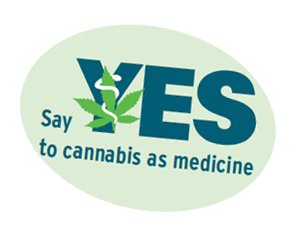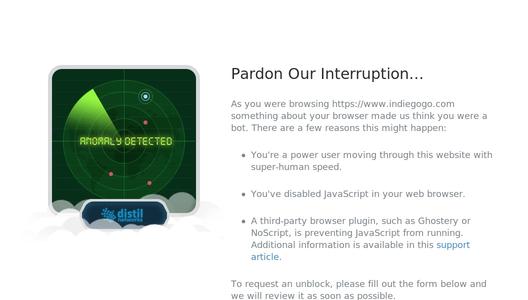Adults with attention deficit/hyperactivity disorder (ADHD) can often benefit highly from cannabis. Specifically, improvements in concentration, sleep and impulse control have been reported.
Cannabinoids are also frequently used as mood enhancers for adults. In recent studies, scientists refer to cannabinoids as a potential new class of fast-acting antidepressants.
Cannabis can also bring considerable relief from suffering of further severe psychological illnesses, such as post-traumatic stress disorder (PTSD). An Israeli study showed a significant overall improvement in the severity of PTSD symptoms with THC, including quality of sleep, frequency of nightmares and symptoms of increased nervous excitement. A study from Canada described cannabinoids as promising in patients with treatment resistant nightmares. The effect is probably based on forgetting unpleasant memories faster.
Cannabinoids can be used successfully as treatment for obsessive-compulsive disorders (OCD) as well. OCD are a form of anxiety disorders characterized by distressing obsessive thoughts and/or compulsive acts. Cannabinoids have the additional benefit of a good long-term tolerance.
Previously, the medical use of cannabis products was mainly researched for physical illnesses such as chronic pain, spasticity related to multiple sclerosis, Tourette’s syndrome, loss of appetite and nausea during cancer treatment.
This article is part of the ongoing information campaign on medical cannabis by the charity “Medical Cannabis Declaration (MCD)”. MCD kicked off a crowdfunding campaign at the platform Indiegogo to finance videos and online lectures in the ten most spoken languages of the world for its information campaign. After four weeks the crowdfunding raised 17% of the target sum of 85,000 $. Please support “Say Yes to Cannabis as Medicine”: www.indiegogo.com/projects/say-yes-to-cannabis-as-medicine--5
Main psychiatric diseases where cannabis and cannabinoids can help, in detail:
Attention deficit/hyperactivity disorder (ADHD)
Attention deficit/hyperactivity disorder (ADHD) of adults is a common indication for the medical use of cannabis. Especially in therapy of hyperactivity and impulse control, there are only a limited number of drugs available, namely amphetamine derivatives, methylphenidate, and atomoxetine.
About four per cent of teenagers in developed countries suffer from ADD (attention deficit disorder) or ADHD. Half of them will still have the symptoms in adulthood. This makes the illness a relatively common chronic disease. People with ADHD are not capable to mentally come to rest. They are constantly on the move, tend to have emotional outbursts and other excessive emotional reactions.
A case series of 30 patients with ADHD, not responding to conventional pharmacological treatments, showed a reduction of a wide variety of symptoms through use of cannabis, including improved concentration, sleep and impulse control. Eight of the 30 participants continued to take stimulants after the study and combined them with cannabis while 22 patients went on to use only cannabis (Milz and Grotenhermen 2015).
Cannabinoids as fast-acting antidepressants
In a recent US survey, 1,131 patients taking cannabis for medical reasons were interviewed (Sexton et al. 2015). The main reasons for using the plant were pain, anxiety, depressions, headaches and arthritis. For years the antidepressant qualities of THC have been demonstrated in animal models for depressions. Clinical studies on the effects of cannabis on physical illnesses frequently described heightened moods euphoria as side-effects of THC. A detailed overview on the use of cannabis based-drugs in the treatment of nausea and vomiting during chemotherapy, published in the British Medical Journal, characterised improved mood as a desirable side-effect (Tramer et al. 2001).
Several studies found potential mechanisms on how THC and CBD can help against depression: “CBD could represent a novel fast antidepressant drug, via enhancing both serotonergic and glutamate cortical signalling through a 5-HT1A receptor-dependent mechanism” (Linge 2016 et al.).
Cannabinoids for post-traumatic stress disorder (PTSD)
Severe characteristic symptoms after traumatic events are described as PTSD. PTSD is often associated with military actions, yet most cases are based in traumatic events in the general population through physical or sexual abuse. Typical symptoms are nightmares, insomnia and flashbacks.
The treatment of PTSD with cannabis is still largely unknown in most countries. It is more widely used in North America as well as Balkan and Middle Eastern countries. In Rhode Island, one of the 23 states of the USA where the medical use of cannabis is legal, a treatment of PTSD with cannabis was recommended by physicians to about 40% of all registered cannabis patients.
Many patients with PTSD showed insufficient improvement of their symptoms with traditional treatments. Cannabis is, thus, often used for treating patients not responding to other kinds of therapy. An Israeli study showed a statistically significant overall improvement in the severity of the symptoms with THC, including quality of sleep, frequency of nightmares and symptoms of increased nervous excitement (Roitman 2014 et al). In a Canadian study with male military personnel suffering from PTSD who experienced nightmares caused by trauma despite being under conventional treatment, researchers found that the cannabinoid “provided significant relief for military personnel with PTSD, indicating that it shows promise as a clinically-relevant treatment for patients with nightmares and a history of non-response to traditional therapies ” (Jetly 2015 et al).
According to research on animal models the therapeutic effect of cannabinoids for PTSD is based on forgetting bad memories faster.
Cannabinoids and obsessive-compulsive disorders (OCD)
Doctors of the University Clinic Charité in Berlin (Germany) wrote in an article in a psychiatric journal of two patients suffering from obsessive-compulsive disorders and were treated successfully in the clinic by oral administration of THC. Both patients had not at all or not sufficiently responded to other available medication.
OCD are a form of anxiety disorders characterized by distressing obsessive thoughts and/or compulsive acts. Thoughts and actions like washing obsession are experienced by the patients as agonizing but must be carried out anyway. Examples for obsessive-compulsive behaviour are washing obsession or the constant checking of certain things like stove tops or door locks (control obsession). Obsessive-compulsive disorders can be a severe burden and very much limit the patient’s quality of life. About two per cent of the population of western industrial nations suffers from OCD. The Berlin doctors point out that THC was well tolerated and especially did not cause worsening of the one patients’ schizophrenia or in the second patients’ depression (Schindler et al 2008).
A special form of OCD is trichotillomania, characterised by the obsession to pull one’s own hair out which can cause noticeable hair loss, psychological stress and social impairment. Psychiatrists at the University of Minnesota in Minneapolis (USA) published the results of a clinical study on 14 women treated with THC. Nine of the participants reacted positively to the treatment with significant lower levels on a scale measuring the strength of trichotillomania symptoms. The authors concluded that “pharmacological modulation of the cannabinoid system may prove useful in controlling a range of compulsive behaviors” (Grant et al. 2011).
Sources:
- Grant JE, Odlaug BL, Chamberlain SR, Kim SW. Dronabinol, a cannabinoid agonist, reduces hair pulling in trichotillomania: a pilot study. Psychopharmacology (Berl) 2011;218(3):493-502.
- Jetly R, Heber A, Fraser G, Boisvert D. The efficacy of nabilone, a synthetic cannabinoid, in the treatment of PTSD-associated nightmares: A preliminary randomized, double-blind, placebo-controlled cross-over design study. Psychoneuroendocrinology 2015;51:585-8.
- Linge R, Jiménez-Sánchez L, Campa L, Pilar-Cuéllar F, Vidal R, Pazos A, Adell A, Díaz Á. Cannabidiol induces rapid-acting antidepressant-like effects and enhances cortical 5-HT/glutamate neurotransmission: role of 5-HT1A receptors. Neuropharmacology 2016;103:16-26.
- Milz E, Grotenhermen F. Successful therapy of treatment resistant adult ADHD with cannabis: experience from a medical practice with 30 patients. Abstract book of the Cannabinoid Conference 2015, September 17-19, Sestri Levante, Italy, page 85.
- Roitman P, Mechoulam R, Cooper-Kazaz R, Shalev A. Preliminary, open-label, pilot study of add-on oral Δ9-tetrahydrocannabinol in chronic post-traumatic stress disorder. Clin Drug Investig 2014;34(8):587-91.
- Schindler F, Anghelescu I, Regen F, Jockers-Scherubl M. Improvement in refractory obsessive compulsive disorder with dronabinol. Am J Psychiatry. 2008 Apr;165(4):536-7.
- Sexton M, Finnell J, Stefano J, Mischley LK. An international survey of medical cannabis use: use patterns and health effects. Abstract book of the Cannabinoid Conference 2015, September 17-19, Sestri Levante, Italy, page 38.
- Tramèr MR, Carroll D, Campbell FA, Reynolds DJ, Moore RA, McQuay HJ. Cannabinoids for control of chemotherapy induced nausea and vomiting: quantitative systematic review. BMJ 2001;323(7303):16-21.
This article was made possible by donations to the ongoing crowdfunding campaign at Indiegogo. Please support the campaign at www.indiegogo.com/projects/say-yes-to-cannabis-as-medicine--5
One of the campaign’s goals is to give patients better access to cannabis as medicine. Only 10 out of 200 countries in the world grand their citizens access to cannabis for medical use. Another 20 countries established regulations that make cannabis as medicine accessible only in a few special cases, while in more than 150 countries legal access to this treatment remains unavailable.
MCD would like to thank the crowdfunding platinum level donor Dr Bronner’s (USA), and the silver level donors Green Snake Hemp Juice (Germany), HempConsult (Germany) and MH medical hemp (Germany) for their contributions. Additional donors are welcome.
The campaign will post about its progress on Twitter using the Hashtag #YesToMedicalCannabis
About Medical Cannabis Declaration e.V. (MCD)
The Medical Cannabis Declaration (MCD) is an online platform founded on 16 February 2013 in Ruethen, Germany, established by worldwide medical professionals and patients who believe that the access to cannabis should not be determined by geography. MCD aims at promoting safe and regular prescription and use of medical cannabis, globally. The charity wants to be part of a growing movement to change the negative perception on cannabis to assure its real medical values are recognised. We solely rely on scientific studies developed for the medical use of the cannabis plant. Visit us at: www.medical-cannabis-declaration.org/


